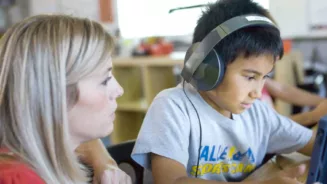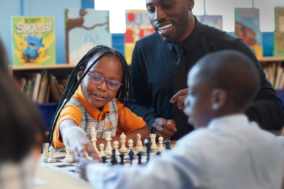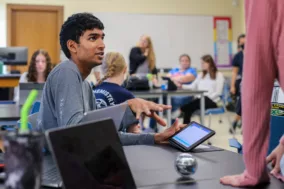Scaling Personalized Learning
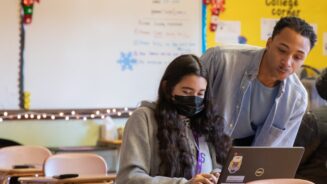
- Alarm bells rang when a 2022 report by the U.S. Department of Education revealed math scores among nine-year-olds had dropped by seven points from pre-pandemic levels and reading scores by five. COVID-19 had erased roughly two decades of academic progress.
- Griffin Catalyst focuses on efforts to expand access to personalized, high-quality tutoring, which is proven to accelerate student learning. Through the work of partner Saga Education, students gained two to three years of additional math learning from one year of tutoring.
- Griffin Catalyst is committed to making personalized learning accessible and cost-effective, both in public schools across the nation and virtually, to students in more than 160 countries—with the goal of accelerating post-pandemic learning recovery.
Saga’s innovative approach to personalized education in math is creating pathways to success for students across our country. I am proud to support their work to empower students with the tools and confidence they need to learn, grow, and make their aspirations a reality.
On September 1, 2022, the U.S. Department of Education released its yearly National Assessment of Educational Progress.
The results were “not just a wake-up call,” reported Anna Nordberg in The New York Times, “but a fire alarm.”
Often called The Nation’s Report Card, the report concluded that the COVID-19 pandemic was “erasing roughly two decades of academic progress” in reading and math for American students.
Across the country, parents were stunned by what Maureen Tracey-Mooney, special assistant to the president for education policy, called a “historic disruption in schooling.” As the search began for solutions, one long-standing answer stood out.
2
Decades of growth for American students in reading and math were wiped away by just two years of pandemic-disrupted learning
“We know that personalized instruction is among the best ways to teach anyone anything—we’ve known that since the founding of Oxford’s tutoring tradition in the 15th century,” observes Jens Ludwig, a faculty director at the Education Lab. “But the challenge in public education is: how can you deliver personalized instruction at large scale and low cost?”
For years, an extensive body of research has supported the belief that individualized tutoring improves academic achievement, but a formidable obstacle has stood in the way. Consistent, high-quality tutoring has traditionally proven far too expensive for most public-school districts, at least at a scale large enough to improve the performance of the student population as a whole.
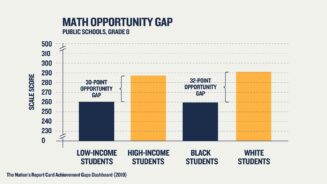
.
A TRANSFORMATIVE APPROACH TO TUTORING IN SCHOOLS
A New Approach
In 2011, Alan Safran, the director of a charter high school in Boston, joined forces with one of the school’s recent graduates, Antonio “AJ” Gutierrez, with the goal of bringing an innovative model from their charter institution into traditional public schools.
Both understood that high-impact tutoring could bring students lagging behind up to grade level, but the question of how to achieve that goal at scale in the public school system remained. The solution lay in the recognition that effective tutors come from a variety of different backgrounds and experiences. So in 2014, they created Saga Education, a nonprofit AmeriCorps partner that trains and deploys large numbers of newly minted college graduates, mid-career switchers, and retirees to spend a year of service tutoring high schoolers.

If you make tutoring after school rather than during the school day, I call it an after-school afterthought.
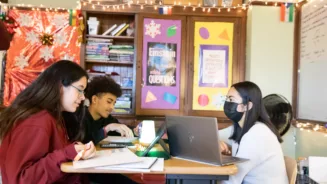
“The job of the tutor is fundamentally different from the job of a teacher,” explains Roseanna Ander, founding executive director of the University of Chicago Education Lab. “Saga Education’s approach dramatically expands the pool of people who could be great tutors right away, able to step into this important role supporting students and their regular classroom teachers.”
The Saga Education program is built on several key pillars. First, it requires sessions to be frequent and consistent–ideally lasting for a full class period, every day, throughout the school year. It also requires that tutoring sessions be held during the school day.
Next, students ideally have the same tutor all year—someone who can overcome initial resistance and work overtime to build a strong rapport with the student. And last, the young tutors themselves need to be motivated, trained, and carefully monitored. Above all, they need to believe that all children can learn and excel with the right support.
Since its founding, Saga Education has focused on a notoriously weak spot for students—and a key gatekeeper for high school graduation: Algebra 1. The majority of students who drop out of high school cite course failures as the main reason for doing so—and Algebra 1 is the most frequently failed course.
2-3
Years of additional math learning in a single year from Saga Education’s high-impact tutoring model
47%
Reduction in math course failures from Saga Education tutoring
Another key element of Saga Education’s approach, and one that made it especially appealing to Griffin Catalyst, was the rigorous evidence of impact, generated through a series of large-scale randomized controlled trials in big public-school districts. The results proved that Saga Education could generate two to three years of additional math learning in a single year.
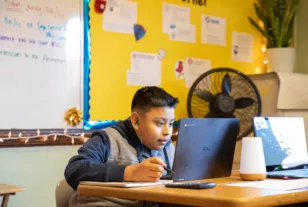
Those studies revealed another benefit: math tutoring also reduced the failure rate in subjects other than math. The tutored students were learning a specific subject, but they were gaining confidence as learners—they were learning how to learn.
Beyond the numerical improvements, Saga Education had achieved a less tangible but equally important success: removing the stigma of tutoring. “When they walked around the hallways, kids’ friends who were not assigned to tutoring would be jealous of their friends who were in tutoring,” Safran reports. “Which is something that was really eye-opening to people. Kids would stand outside the door [wondering], ‘Oh, how come I can’t get in?’”
What’s more, Saga Education had also managed to reduce tutoring costs by nearly two-thirds, from $3,400 per pupil to $1,300—and it is working to lower costs more. At last, it was possible to imagine scaling personalized learning, and with the assistance of Ken Griffin, in 2021, the Chicago Public Schools brought Saga to over 30 high schools. Griffin had himself been a tutor and understood how valuable the personalized approach could be.
Speeding the Post-Pandemic Recovery
As the pandemic took hold, the stakes grew even higher. With an entire generation of American students in danger of falling behind, it became clear that even broader interventions needed to be evaluated and pursued nationwide. In 2021, Griffin Catalyst provided a leadership gift of $15 million to support the launch of Accelerate, a new non-profit organization dedicated to expanding high-impact tutoring programs in public schools to address pandemic-related learning loss. Partners in the effort included Arnold Ventures, the Bill & Melinda Gates Foundation, the Overdeck Family Foundation, and others.
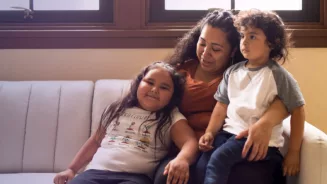
With support from Griffin Catalyst and these partners, Accelerate has helped to both highlight the efficacy of high-impact tutoring and invest in the most promising approaches, leveraging both local and federal funding to support this effective response to learning recovery.
With its gift, Griffin Catalyst helped pave the way for a massive national effort to allow local school districts to build evidence-based tutoring and enrichment programs to assist with learning recovery nationwide. In April 2023, Accelerate announced five new grants, of $1 million each, to the states of Arkansas, Colorado, Delaware, Louisiana and Ohio, to scale up promising efforts at intensive tutoring for elementary and middle-school students—both in-person and online—to improve educational outcomes.
The evidence is clear; high-impact tutoring works. We must seize this moment to use federal relief funds to help students, including those most impacted by the pandemic, to close gaps in opportunity and achievement that grew even wider over the last two years.
Given the sheer scale of national learning loss caused by the pandemic, it was apparent that every avenue would need to be explored. Expanded in-person tutoring had to be supplemented through digital learning—using techniques that could be implemented widely and cost-effectively.
Around the world, no one had demonstrated the possibilities presented by online learning more than Sal Khan—founder of the globally popular digital learning tool Khan Academy—who co-founded Schoolhouse.world in the midst of the pandemic. The online platform pairs students with tutors around the globe to further expand access to free, high-quality, personalized instruction. A multimillion-dollar commitment from Griffin Catalyst is now helping to scale Schoolhouse.world’s fast-growing platform, which has already served students in more than 160 countries and has rapidly become a global resource for students struggling to recover from pandemic-related learning loss.
By the start of 2023, twelve U.S. states had partnered with Schoolhouse.world to reach more than 20,000 American students, largely through four-week “boot camps” to aid with math and test prep. Initial research showed that students participating in the program saw their SAT scores rise 55 points above their practice exams, compared to students who were not involved in the program.
160+
Countries’ students have accessed schoolhouse.world for high-quality tutoring
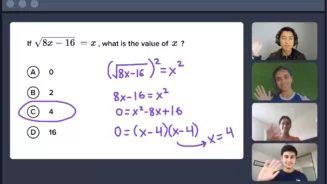
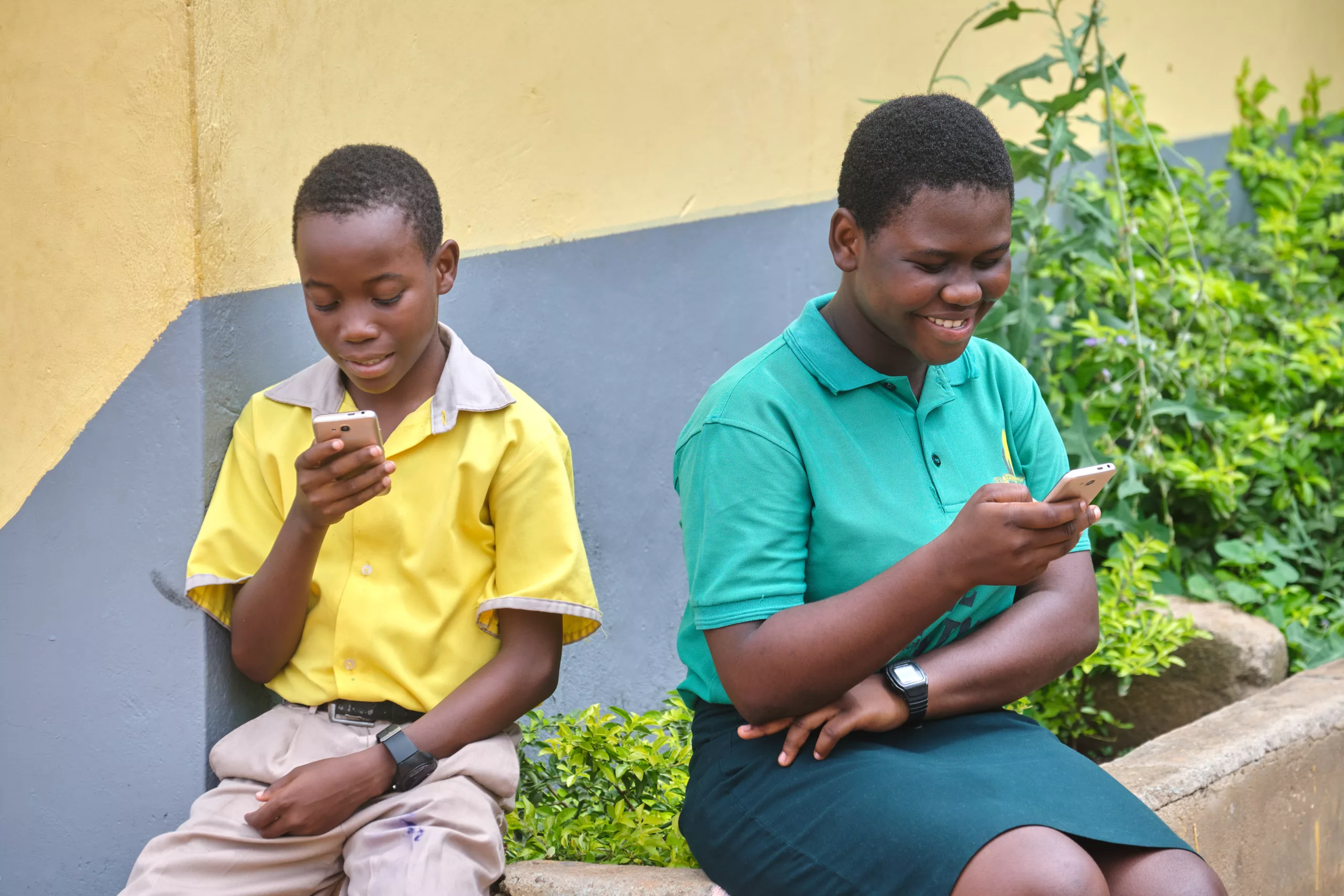
Looking globally for innovative ways to help students learn, Griffin Catalyst also partnered with Schmidt Futures in 2020 to fund the Learning Engineering Tools Competition. The competition sought to identify promising online technologies tackling the educational challenges most exacerbated by the pandemic—especially in math, data science and computer science.
The first year of the competition brought in nearly 900 entries, from more than 60 countries, showcasing a range of innovative ways to accelerate pandemic-related learning recovery. Following the success of the first competition, Griffin Catalyst, Walton Family Foundation, and Schmidt Futures brought on new partners to broaden the scope and expand the impact of this now annual event.
2,700+
Proposals received in three years of the Learning Engineering Tools Competition to accelerate post-pandemic learning recovery
In late November 2022, the University of Chicago Education Lab, working alongside Accelerate and other partners, announced a new $18 million research project to directly address the longstanding challenges that have prevented intensive, small-group tutoring from widespread adoption across the United States. The Education Lab, which draws on the faculty expertise of not only University of Chicago itself but also other renowned universities, including Northwestern, Princeton, the University of Toronto, and Stanford University, will use this historic moment to accelerate research on how best to integrate tutoring into public education – implementing and testing solutions in real-time to inform policy and practice.
Indeed, the scope and scale of the setback brought on by the pandemic is propelling the energies and imaginations of educators focused on learning recovery. “We have a once-in-a century public health crisis and also a once-a-century education crisis,” observes Monica Bhatt, a senior research director at the Education Lab. “This is an opportunity to do things a little differently.”
